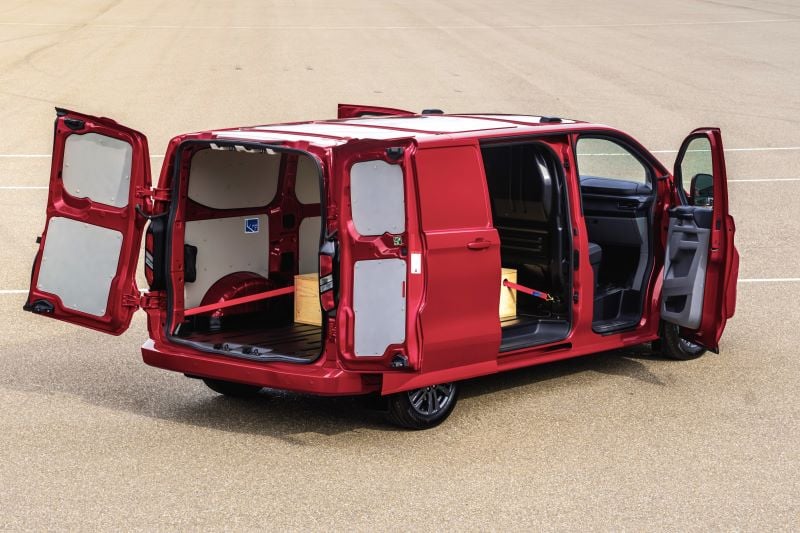10 Everyday Bad Driving Habits That Damage Your Van

Look, we get it, we’re all guilty of being bad van drivers once in a while (maybe more!) but there is bad driving and there are bad habits!
Bad habits will often form over time, whether it comes from complacency or simply the drudge of being on the road for long periods.
But did you know these bad habits can end up having a big impact, whether that’s financially through premature repairs needing to be completed or – more seriously – being caught out by law enforcement.
At a time when driving penalties are getting stricter and we’re all looking to save a few precious pennies, swapping out some of these bad habits you might be guilty of could make a huge difference down the road�
1. Resting your Hand on the Gearstick
Driving instructors usually tell you to keep both hands on the wheel at all times (10 and 2, 10 and 2!) except when changing gears. Resting your hand on the gearstick is bad for the transmission of your van.
The gearstick is hooked to a selector fork which is designed to make connection with a rotating collar for a small period of time. Resting your hand on the gearstick risks applying pressure to the selector fork, result in premature wear.
Fortunately, an increasing number of vans (and all electric vans) have done away with the gear lever altogether so there is no excuse than to keep those hands on the wheel at all times!
2. Flooring the Accelerator in a High Gear
A number of new vans include a feature that indicates the most advisable time to change up or down through the gears, this is there for a reason.
Accelerating at low rpm or in a gear which is too high makes the engine work harder, placing strain on the motor.
Change down a gear and allow revs to rise before shifting up a gear, particularly important when climbing hills or when carrying heavier loads.
3. Overloading your Van
New vans are designed to be tough and carry the heaviest of loads, however exceeding the payload is not only illegal but also places additional strain on the suspension and brakes of your van.
Some new vans such as the new Citroen Berlingo feature an overload indicator to let drivers know when they are approaching or exceeding the payload capacity.
4. Switching from Drive to Reverse Before Stopping your Van
Changing gear between reverse and drive and vice versa in a van with an automatic gearbox is damaging for the transmission.
The design of the automatic gearbox is for changing gears, doing this before coming to a halt will cause wear and tear on the transmission of your van.
5. Hitting Speed Bumps and Potholes
Speed bumps – while safe in their intention – have been identified as the bane of van drivers with many forcing you to slow to a crawling pace to navigate them. They are usually installed for a reason (residential areas, schools) so it is important not to strike them at speed for doing so can cause significant damage, either immediately or eventually.
On the other hand, potholes – which should be resolved by local councils but often aren’t – are thought to be responsible for a third of all damage caused to vehicles. The results are often buckled, cracked alloys, lumps in the tyre and tracking and wheel balancing problems. Proceed with caution.
6. Ignoring Warning Lights
New vans feature numerous lights which should never be ignored. Ensure you know what these lights mean and whether this correspond to the engine, braking system, power steering, airbag, oil pressure or cooling system, don't be afraid to contact a mechanic if you don't.
7. Revving your Engine When Cold
Some may tell you that making regular short trips is detrimental to your van with the engine oil never fully warms up.
However, all vans begin from cold, so the vital thing is to not rev the engine until it has warmed up, giving the oil time to circulate around the engine and warm, avoiding undue wear and tear and potential damage.
8. Braking Late
You may be required at some point to perform and emergency stop where sudden braking is a necessity, however braking late consistently will place additional strain on your brakes, wearing out the discs and pads faster as well as costing you more in fuel.
A slower approach to the road ahead is better for the environment and your van.
9. Dragging your Brakes Downhill
Dragging your brakes is poor practice and is likely to increase wear and tear on brake discs and pads, meaning you'll need to replace them more often.
When travelling downhill, it's recommended to use a low gear whilst applying some light braking, then releasing the pedal to allow the brakes to cool down.
10. Driving while Tired
Fatigue is one of the main causes for crashes involving van drivers in the UK. With potentially long working hours and the monotony of being on the road, being tired while driving can be a killer.
While not a bad habit per se, many might choose to keep driving instead of stopping to take a break in order to save time. However, even a mere 15-minute break every couple of hours could make a huge difference to your physical state and ensure you can stay alert and awake.

Lease A Ford or Vauxhall Van with Vansdirect
Leasing a new Medium Van with Vansdirect has never been easier or better value.
Get the right van at the right deal, right now with the best medium van leasing deals available across a wide array of models, including the Renault Trafic, Vauxhall Vivaro and the Ford Transit Custom.
Speak to our expert team today and you could be driving a new van for less than you think, sooner than you thought.

















